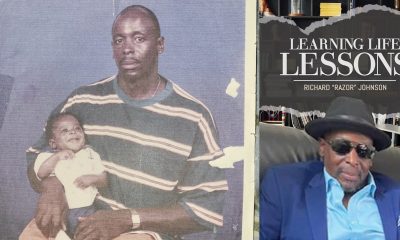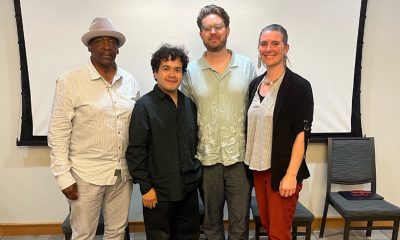Crime
Legislators Call for Reform of Solitary Confinement Conditions
A hearing was held Tuesday by legislators to push for sweeping reform in conditions faced by thousands of prisoners in solitary confinement at Pelican Bay and other state prisons, where they are often locked in the “hole” for decades in cells without a window, deprived of human contact, phone calls and even photos of loved ones.
The joint hearing called by San Francisco Assemblyman Tom Ammiano and Senator Loni Hancock was the second held in the wake of a hunger strike last year by over 30,000 California state prisoners – the third in two years – demanding an end to inhumane treatment, which they say constitutes torture under international law.
The two legislators and others criticized the reforms proposed by the California Department of Corrections and Rehabilitation (CDCR), which operates the state prisons, saying they do not go far enough to change the practices of placing prisoners for indefinite terms in Security Housing Unit (SHUs), which many feel should be abolished.
“Last year’s hunger strike again brought home the message that we need to do
something about the SHU,” said Ammiano. “Moves by corrections show that they recognize the pressures for change. We want to look at whether those new regulations represent true progress.”
“There is no questions that these policies must be reformed,” said Hancock. “While I understand the CDCR is in the process of changing its SHU policy, my initial reading of the new policy left many questions unanswered.”
“We are working towards meaningful change, and at the end of the day we want to get it right,” she said.
Oakland civil rights attorney Anne Weils, who spoke at the hearing, read a statement by four Pelican prisoners who “called for the last hunger strike and starved to the end.” She said the prisoners were not allowed to attend, give testimony, listen or watch the hearing.
“We are prisoners at Pelican Bay State Prison who have all lived for over 15 years locked 23 hours a day in small windowless cells, without ever being able to hug or touch our families … with no programs or chance of parole,” the statement said.
“California keeps us in these torturous conditions not because of any violence we have committed but because it believes we are affiliated with a gang, often based on artwork or photos we possess, tattoos we have, literature we read, who we talk to, or anonymous informants’ statements that we have no way of challenging.”
“We are put in Pelican Bay not for any specific term of months, or years for misconduct we have committed, but indefinitely, which in practice means forever – unless we become informants.”
“So this is our banned testimony. CDCR claims to have now instituted a reform program. It is a sham,” said the statement signed by Sitawa Jamaa, Todd Askher, Arturo Castellanos and Antonio Guillen.
Craig Haney, a psychology professor at UC Santa Cruz, speaking at the hearing, said that California’s wide use of definite solitary confinement, “makes it a outlier in respect to other states, (while) the U.S. is an outlier in respect to other countries.
“It is shocking and unprecedented by international standards,” Haney said. “We should debate whether long-term solitary confinement [is] torture.”
Prison officials maintain that secure housing units help thwart dangerous prison gangs and protect general prison populations from more violent inmates. During Tuesday’s hearing, officials who oversee the process pointed to progress in opening a pathway out of solitary.
“I think we all agree it is far too easy to get in and too hard to get out, and that the stays in this environment were certainly too long,” said Martin Hoshino, undersecretary of operations for the California Department of Corrections and Rehabilitation.
Dozens of speakers – many teenaged sons and daughters and wives of inmates in solitary – lined up to briefly describe the impact on solitary confinement on their lives.
An 18-year-old young man said he and other worried about the psychological damage caused by locking their family members in the SHU. “Families that are praying that the person who gets out of solitary is the same person who he was when he went to jail.”
“My son has been in solitary confinement since 2009,” said a woman. “There is no reason why we as family members should not be able to have contact with our loved ones.”
A young man said that when he was arrested and held at a local jail, he was placed in isolation for two weeks because he had a seizure and officials thought he was pretending.
“I felt hopeless and trapped,” he said. “They wouldn’t allow me to shower for four days, I could smell myself and felt despised.”
Activism
Oakland Post: Week of December 10 – 16, 2025
The printed Weekly Edition of the Oakland Post: Week of – December 10 – 16, 2025

To enlarge your view of this issue, use the slider, magnifying glass icon or full page icon in the lower right corner of the browser window.
Activism
Oakland Post: Week of November 26 – December 2, 2025
The printed Weekly Edition of the Oakland Post: Week of November 26 – December 2, 2025

To enlarge your view of this issue, use the slider, magnifying glass icon or full page icon in the lower right corner of the browser window.
Activism
Oakland Post: Week of November 19 – 25, 2025
The printed Weekly Edition of the Oakland Post: Week of November 19 – 25, 2025

To enlarge your view of this issue, use the slider, magnifying glass icon or full page icon in the lower right corner of the browser window.
-

 Activism4 weeks ago
Activism4 weeks agoOakland Post: Week of November 19 – 25, 2025
-

 #NNPA BlackPress3 weeks ago
#NNPA BlackPress3 weeks agoLIHEAP Funds Released After Weeks of Delay as States and the District Rush to Protect Households from the Cold
-

 Alameda County2 weeks ago
Alameda County2 weeks agoSeth Curry Makes Impressive Debut with the Golden State Warriors
-

 Activism3 weeks ago
Activism3 weeks agoOakland Post: Week of November 26 – December 2, 2025
-

 #NNPA BlackPress4 weeks ago
#NNPA BlackPress4 weeks agoBeyoncé and Jay-Z make rare public appearance with Lewis Hamilton at Las Vegas Grand Prix
-

 #NNPA BlackPress3 weeks ago
#NNPA BlackPress3 weeks agoSeven Steps to Help Your Child Build Meaningful Connections
-

 #NNPA BlackPress3 weeks ago
#NNPA BlackPress3 weeks agoSeven Steps to Help Your Child Build Meaningful Connections
-

 #NNPA BlackPress4 weeks ago
#NNPA BlackPress4 weeks agoLewis Hamilton set to start LAST in Saturday Night’s Las Vegas Grand Prix




















































